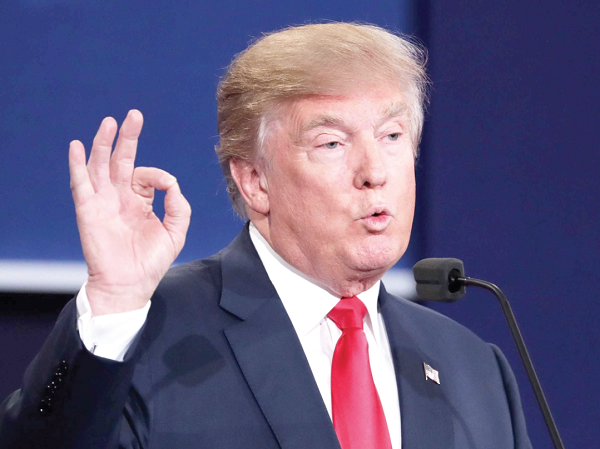
The international community - • Reality or imagination?
Several incidents keep occurring that invoke references to the international community. The most recent one is President Trump’s recognition of Jerusalem as the capital of the Jewish state of Israel.
Others are that North Korea continues to build nuclear arsenals, and the incidence of natural disasters and terrorist strikes that plague most poor countries in Africa such as the recent landslide in Sierra Leone and the massive bomb attack that hit Mogadishu, the capital of Somalia, recently.
Advertisement
A call
In all these incidents, people and countries call on the international community to intervene, condemn or help in dealing with the situation at hand. Many a time these calls come from both small and weak countries, as well as the rich and powerful developed countries.
This is a clear reflection of the need for the world to have an impartial, independent and a higher authority that transcends the sovereignty of the various states to put a break on the excesses of the behaviour of these states.
However, the conduct of most states, especially the powerful ones, suggest that the embryonic growth of an effective global institution that could protect nations from themselves appears to be permanently arrested.
A desire
Creating a community composed of individual sovereign states and other non-state entities is an inherent desire of everyone to leverage our capabilities to confront any threat to our survival. However the fact that national interests and state sovereignty is recognised within the international system has made some countries work towards their greatness at the expense of the welfare of the others.
The state system, with its principle of sovereignty and territorial integrity, though created with noble intentions, has become a threat to the international community concept.
Disappointment
Although the world has come far with astonishing breakthroughs in science and technology, its changing effect on all aspects of human life is yet to be felt on the way we govern or fail to govern ourselves on the planet. The end of the Cold War superpower confrontations brought dramatic changes to the global situation, yet the nation-state system, the traditional building block of global politics, continues to exist.
Sovereign nation-states continue to reign supreme, reinforced by enormous state military power.
In a normal community, circumstances can make others become rich and powerful. Others too can become less fortunate within the same community. However, if reference is being made to the community, everyone, whether rich or poor, identifies with that community as well. The global community in reference also contains varied countries, each with different circumstances and status.
Some are powerful, some are rich, some are poor. Some are even less of a state. However, all the references people make concerning the international community, are most of the time, all about the great powers and their sets of interests.
Facing reality
If indeed we cannot run away from the fact that those powerful nations have global reach and influence beyond their countries and regional borders, and that they command global attention because their actions and decisions affect the whole world, why are we deluding ourselves with the notion of an international community, if indeed the voices and interest of other countries are seldom taken into consideration within the global setting?
The fact that we have the United Nations (UN) is a testimony to the desire of the world to work in concert to address immerging challenges of the world. That desire comes naturally even to those who wish to go alone because of their advantaged position in the world.
The desire first expressed itself leading to the establishment of the defunct League of Nations back in 1919. To realise the collective will of all nations within a real global or international community is one thing that is missing in the world at the moment, though institutions express their view that that desire exists in the form of the UN.
The tension generated by powerful states seeking national interest in a fragile interdependent world remains one of the most striking and dangerous characteristics of our present day.
Conclusion
Political leaders of powerful states are largely following a realist script, putting their interest ahead of wider global interest. Building and strengthening a multilateral global institution that addresses transnational problems is secondary on their priority list.
Our own Secretary-General of the UN, Mr Kofi Annan, observed that the world had changed in profound ways “but I fear our conception of national interest has failed to follow suit. A broader definition of global interest is required which will induce states to find greater unity in pursuit of the common good and values.”




